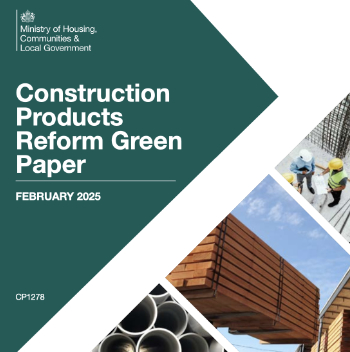Prior approval for permitted development
Generally it is up to a local planning authority to decide whether to allow a particular development or not. However, in England and Wales, the Town and Country Planning (General Permitted Development) Order 1995 enables central government to permit certain types of developments known as ‘permitted developments’. These are generally minor changes to existing properties.
In certain cases, even though a development is permitted, prior approval of some issues is required from the local authority. This includes:
- Specific issues to do with agricultural land, such as the purpose, siting and design of agricultural buildings as well as the construction of a private way, the siting of excavation or deposit or the siting and appearance of tanks.
- Similar issues for land used for the purposes of forestry.
- Erection of plant, machinery, buildings, or structures on land used as a mine.
- The demolition of a building.
- Siting and appearance of telecommunications masts.
The Town and Country Planning (General Permitted Development) (Amendment) (England) Order 2013 came into force on 30 May 2013. It amends the Town and Country Planning (General Permitted Development) Order 1995. Some of these amendments permit development only with prior approval of certain aspects or beyond certain sizes:
- Rear extensions up to 8m in depth for detached properties and 6m for attached properties until 30 May 2016. If a neighbor objects, prior approval is required to assess the impact of the proposed development on the amenity of any adjoining premises.
- Change of use class from office to residential.
- Change of use class to a state-funded school, from classes B1 (business), C1 (hotels), C2 (residential institutions), C2A (secure residential institutions) and D2 (assembly and leisure).
- Change of use class from an agricultural building to a flexible use falling within either Class A1 (shops), Class A2 (financial and professional services), Class A3 (restaurants and cafes), Class B1 (business), Class B8 (storage or distribution), Class C1 (hotels) or Class D2 (assembly and leisure).
The procedures for seeking prior approval are set out in the legislation.
[edit] Related articles on Designing Buildings Wiki
- Article 4 direction.
- Avoiding planning permission pitfalls.
- Change of use class.
- Class Q permitted development.
- Planning permission.
- Permitted development.
- The Town and Country Planning (General Permitted Development) (Amendment) (England) Order 2013.
- The Town and Country Planning (General Permitted Development) Order 1995.
- Use class.
[edit] External references
Featured articles and news
CIOB Construction Manager of the Year 2025
Just one of the winners at the CIOB Awards 2025.
Call for independent National Grenfell oversight mechanism
MHCLG share findings of Building Safety Inquiry in letter to Secretary of State and Minister for Building Safety.
The Architectural Technology Awards
AT Awards now open for this the sixth decade of CIAT.
50th Golden anniversary ECA Edmundson awards
Deadline for submissions Friday 30 May 2025.
The benefits of precast, off-site foundation systems
Top ten benefits of this notable innovation.
Encouraging individuals to take action saving water at home, work, and in their communities.
Takes a community to support mental health and wellbeing
The why of becoming a Mental Health Instructor explained.
Mental health awareness week 13-18 May
The theme is communities, they can provide a sense of belonging, safety, support in hard times, and a sense purpose.
Mental health support on the rise but workers still struggling
CIOB Understanding Mental Health in the Built Environment 2025 shows.
Design and construction material libraries
Material, sample, product or detail libraries a key component of any architectural design practice.
Construction Products Reform Green Paper and Consultation
Still time to respond as consultation closes on 21 May 2025.
Resilient façade systems for smog reduction in Shanghai
A technical approach using computer simulation and analysis of solar radiation, wind patterns, and ventilation.
Digital technology, transformation and cybersecurity
Supporting SMEs through Digitalisation in Construction.
Villa Wolf in Gubin, history and reconstruction. Book review.
Construction contract awards down one billion pounds
Decline over the past two months compared to the same period last year, follows the positive start to the year.
Editor's broadbrush view on forms of electrical heating in context.
The pace of heating change; BSRIA market intelligence
Electric Dreams, Boiler Realities.
New President of ECA announced
Ruth Devine MBE becomes the 112th President of the Electrical Contractors Association.
























